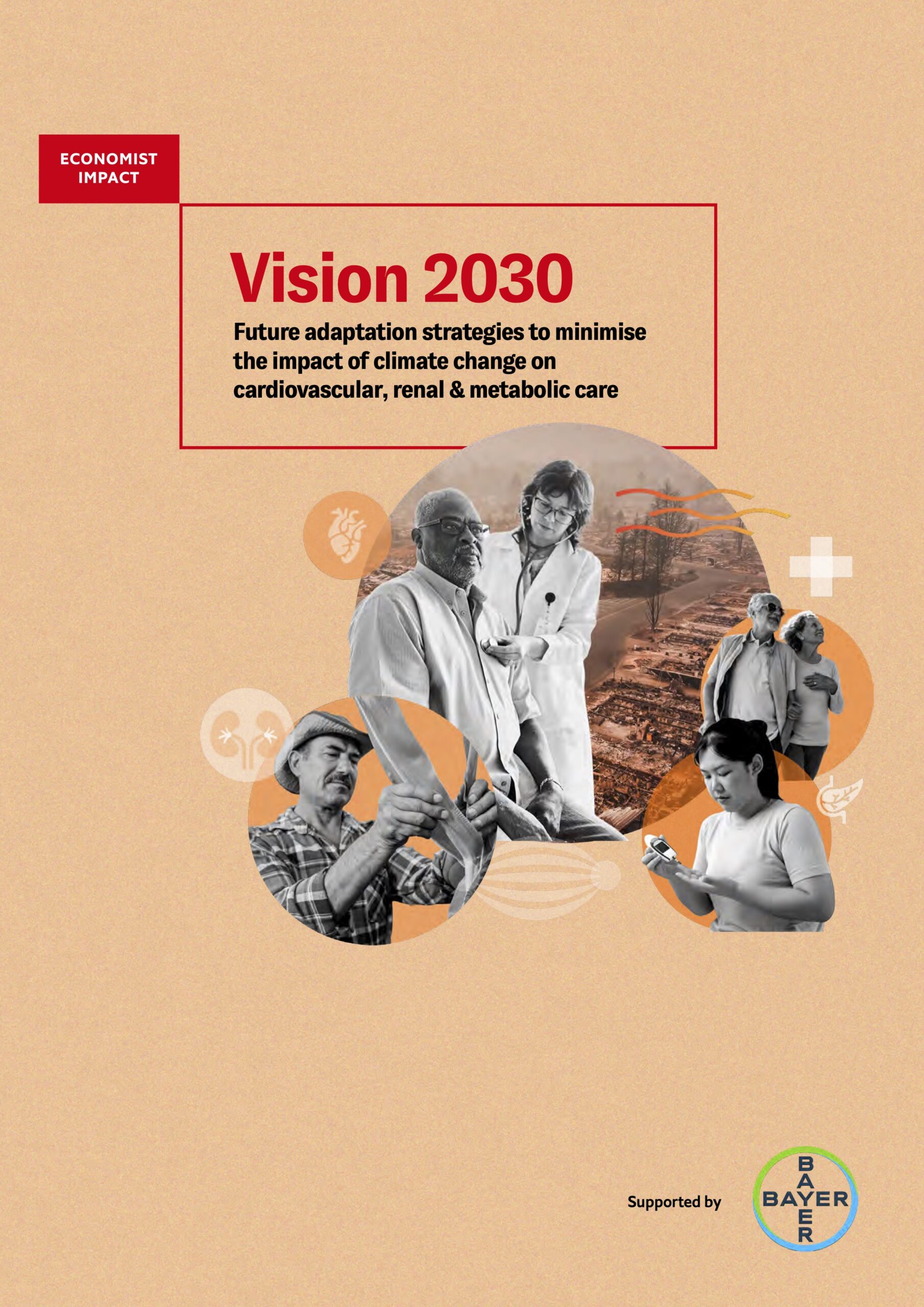Economist Impact, 2025

The wider interaction of climate change and health is gaining increasing attention. The World Health Organisation (WHO) has published a number of guidances and white papers, the latest a Global Action Plan on Climate Change and Health, which runs until 2028, and national governments are being encouraged to do the same. Such general efforts will be crucial to prepare for the challenges ahead. However, climate change and health will also need granular solutions to adaptation needs arising from specific illnesses. That is why this study has taken a disease-specific focus, specifically adaptation for the better care and management of people living with cardiovascular, renal and metabolic diseases.
Using a backcasting approach, the aim is to present a road to a better future than the one described above. It posits a hopeful Vision 2030, in which, “by 2030, we envision a world where the effects of climate change on cardiovascular- renal-metabolic health have been minimised, fostering equitable and inclusive care”. To help interested stakeholders reach this ambitious but attainable goal, we present a detailed framework with five individual components (each containing two main milestones) and three cross-cutting ones (see Figure 1 for a summary). Each is important on its own, but together they create a mutually supportive structure for progress.



